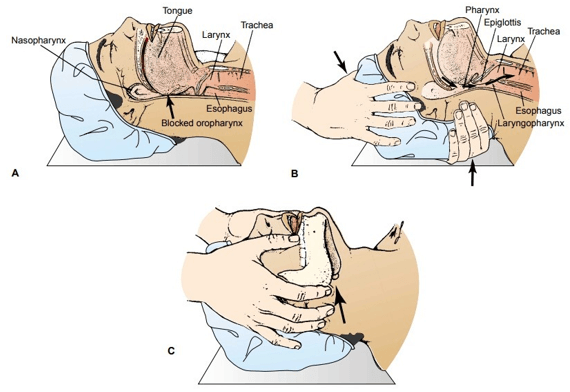A nurse is observing an assistive personnel (AP) take a client's tympanic temperature. Which of the following actions should the nurse identify as an indication that the AP understands how to perform the procedure?
The AP inserts the probe with a straight, forward motion.
The AP positions the client facing her.
The AP pulls the pinna up and back.
The AP points the probe posteriorly.
The Correct Answer is C
Choice A Reason:
Inserting the probe with a straight, forward motion is not correct because the ear canal is curved, and this technique could lead to inaccurate readings or discomfort.
Choice B Reason:
The AP positions the client facing her. The position of the client's face is not relevant to taking a tympanic temperature. The client can face any direction during the procedure.
Choice C Reason:
Pulling the pinna up and back straightens the ear canal in adults, allowing for a more accurate reading when taking a tympanic temperature.
Choice D Reason:
Pointing the probe posteriorly is incorrect as the probe should be pointed towards the tympanic membrane, which usually requires slight angling to align with the ear canal.
Nursing Test Bank
Naxlex Comprehensive Predictor Exams
Related Questions
Correct Answer is ["C","D","E"]
Explanation
When managing oxygenation for a client in a PACU, the nurse should take several actions. The nurse should add a humidifier to the oxygen device to help prevent dryness of the nasal passages¹.
The nurse should also encourage the client to perform deep breathing exercises to promote oxygenation¹.
Additionally, the nurse should examine the client's nail beds for signs of cyanosis, which can indicate inadequate oxygenation¹.

Correct Answer is B
Explanation
Choice A Reason:
Removing personal protective equipment (PPE) after leaving the client's room is correct, but it should be done in a way that minimizes the risk of contamination. Proper doffing of PPE is essential to prevent self-contamination.
Choice B Reason:
Wear a gown when assisting the client with personal hygiene. When caring for a client with methicillin-resistant Staphylococcus aureus (MRSA) in a long-term care facility, wearing a gown when assisting the client with personal hygiene is an important infection control measure. MRSA can be transmitted through direct contact with contaminated surfaces or skin, so wearing a gown can help prevent the spread of the bacteria from the client to the healthcare provider's clothing.
Choice C Reason:
Ensuring that negative air pressure is active for the client's room is not typically necessary for MRSA precautions. Negative air pressure rooms are often used for clients with airborne infectious diseases, such as tuberculosis.
Choice D Reason:
Restricting the client's visitors may be necessary in some cases, especially if there is a concern about the potential spread of MRSA to vulnerable individuals. However, visitor restrictions should be implemented based on the facility's policies and guidelines, and they should be communicated clearly to visitors and family members.

Whether you are a student looking to ace your exams or a practicing nurse seeking to enhance your expertise , our nursing education contents will empower you with the confidence and competence to make a difference in the lives of patients and become a respected leader in the healthcare field.
Visit Naxlex, invest in your future and unlock endless possibilities with our unparalleled nursing education contents today
Report Wrong Answer on the Current Question
Do you disagree with the answer? If yes, what is your expected answer? Explain.
Kindly be descriptive with the issue you are facing.
